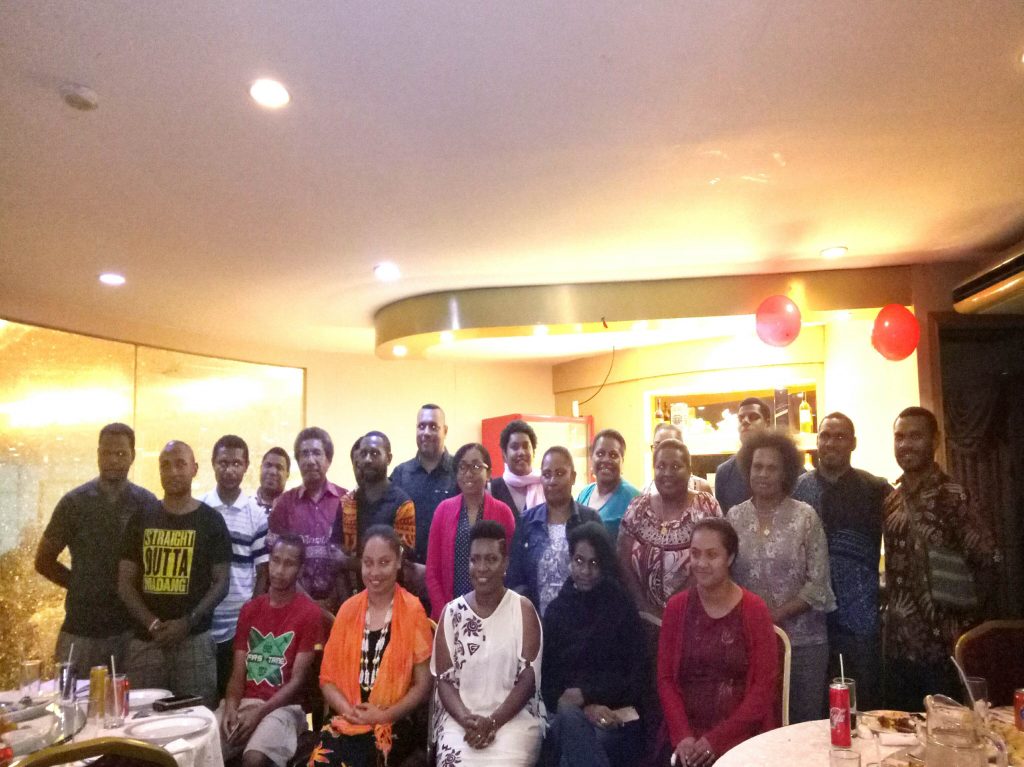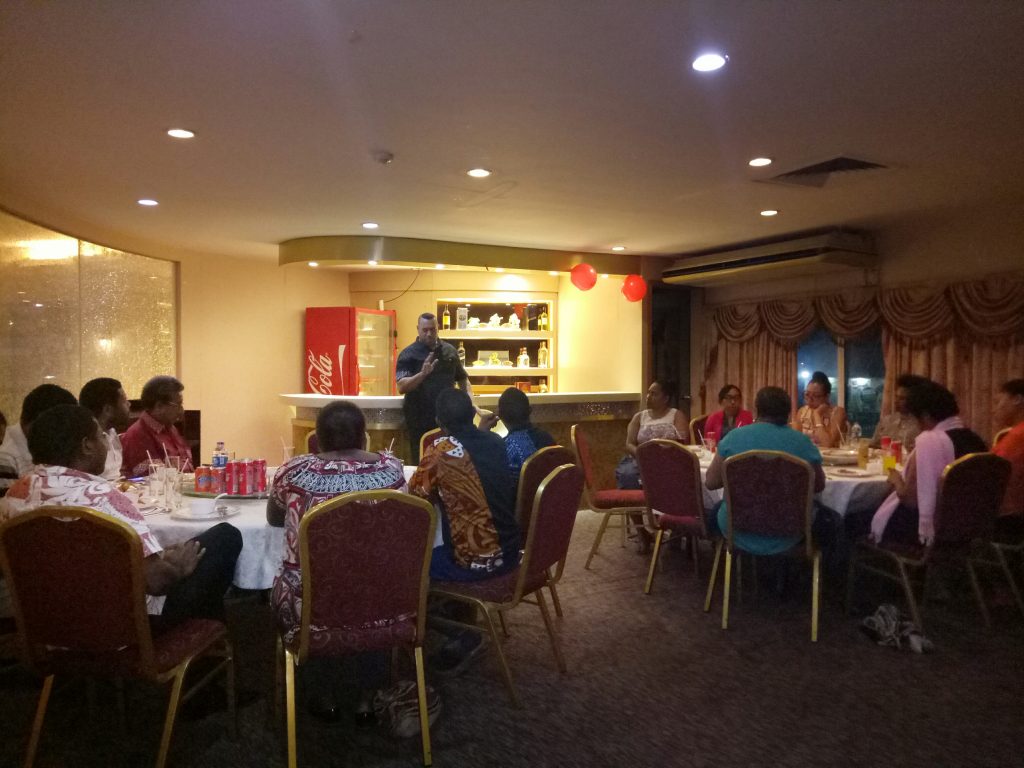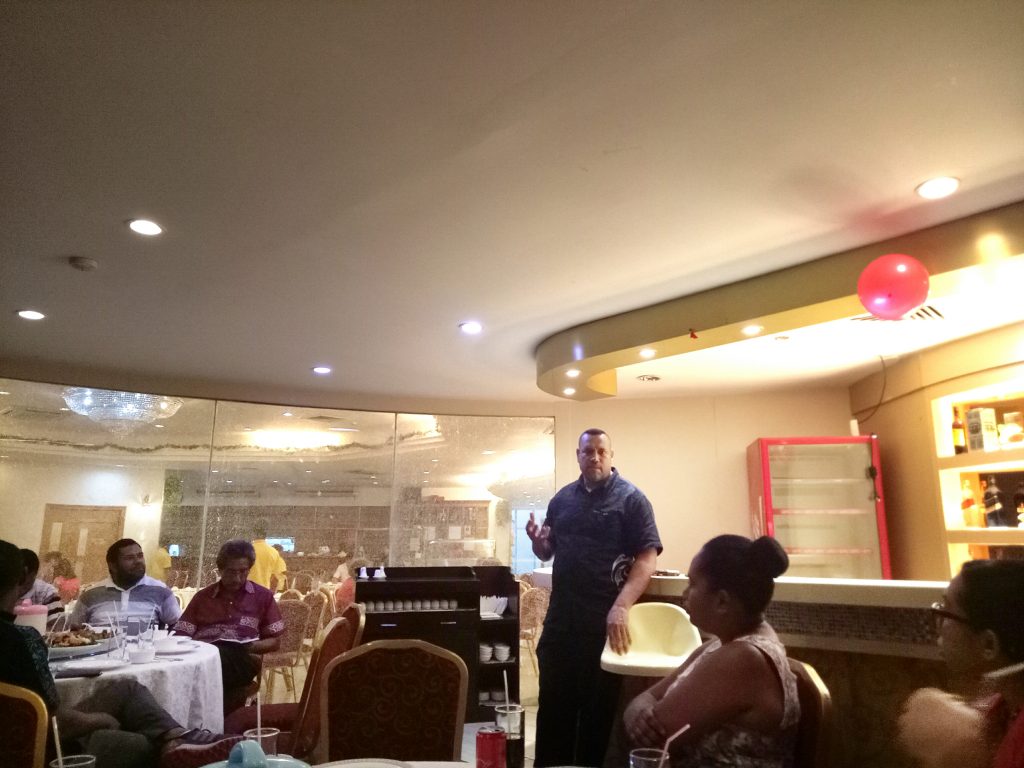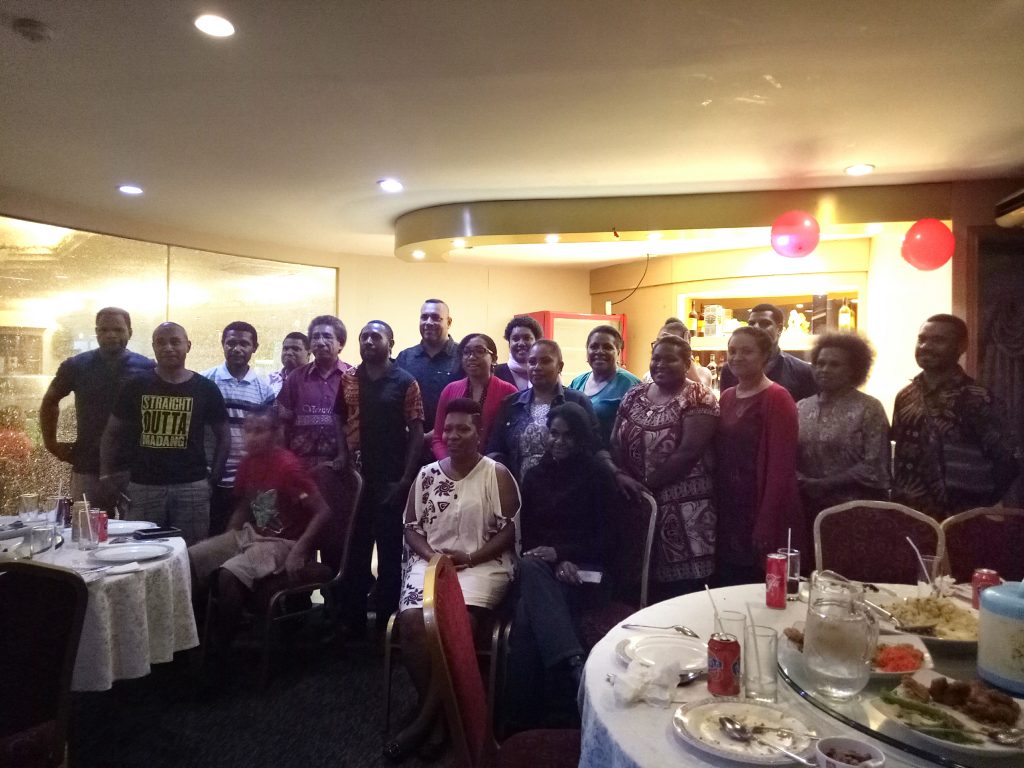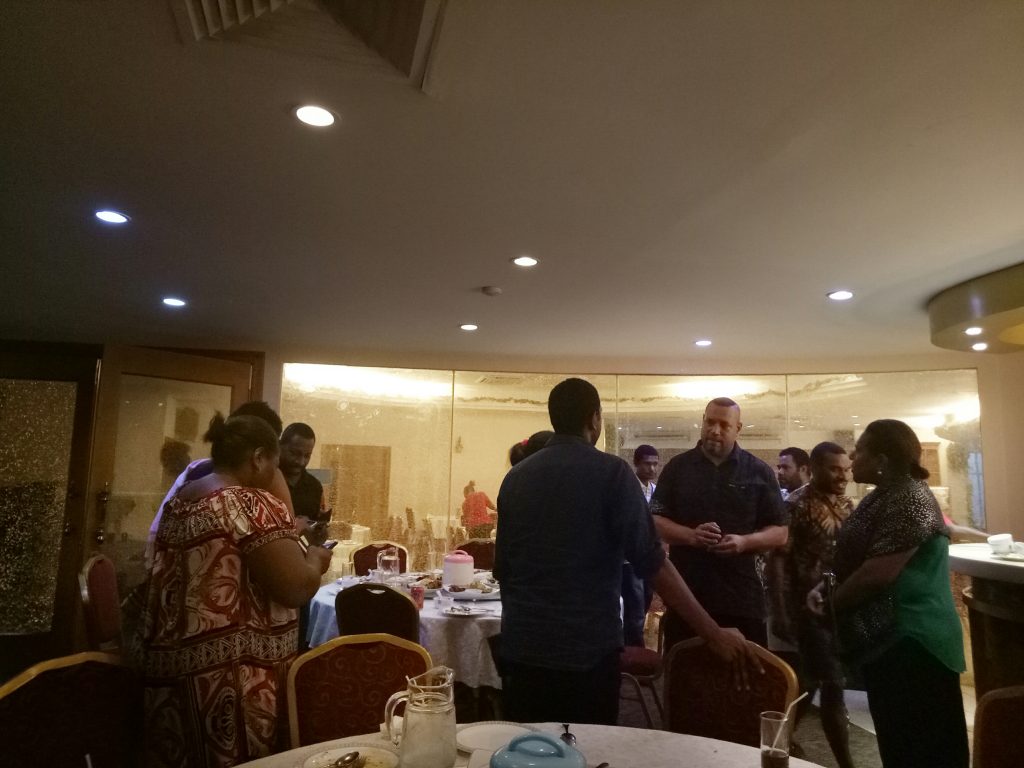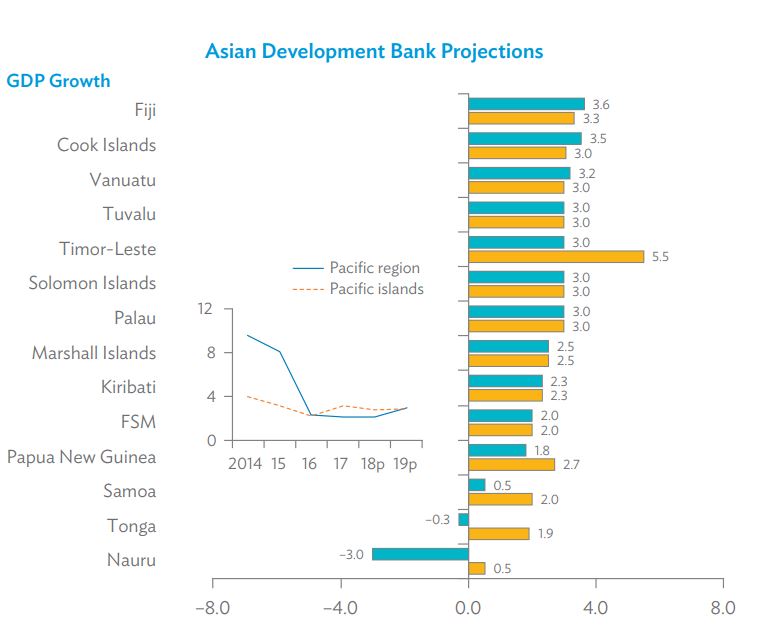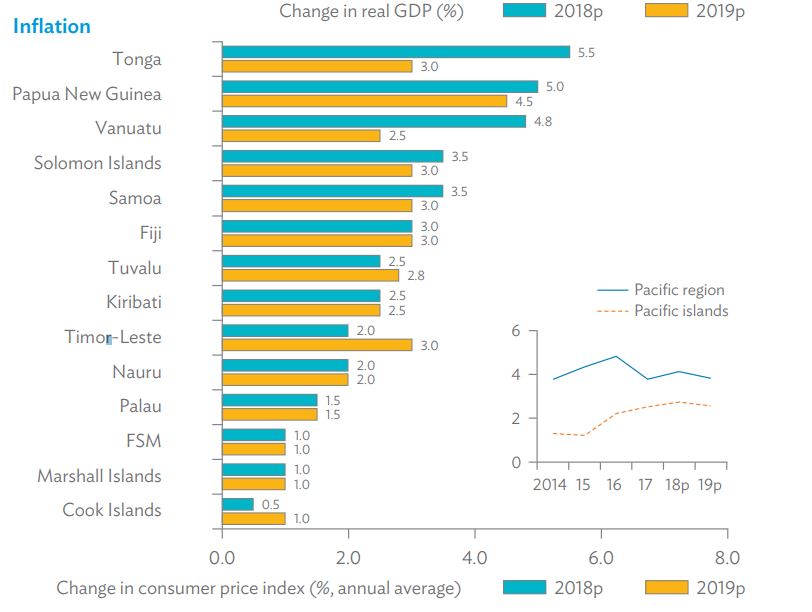By Joanita Nonwo – EMTV Online
Walking in through the door, the East Sepik Governor, Allan Bird announced “sorry I went to the wrong RH” a hint of his humorous personality with all politics aside, joking about getting the wrong venue for ‘Cuppa with Attitude Plus’.
For those not familiar with the work of Attitude Plus (A+), it is an organisation that aims to inspire and motivate people to aspire and reach their goals in life through coaching.
Since its establishment, A+ has had a fair share of great entrepreneurs, motivators and leaders featured on their monthly segments called “Cuppa with Attitude Plus” from the likes of Ms Susil Nelson-Kongoi to Steven Kilage.
“This is the first time we’re actually having a dinner with Attitude now; we call it Cuppa with Attitude because we started hosting it at Cuppa, at Vision City, and it was just a coffee night you get along with friends and you talk about topics of interest; and we learnt a lot from what we call ‘VIP mentors,” stated the Founder and CEO of Attitude Plus, Ganjiki Wayne.
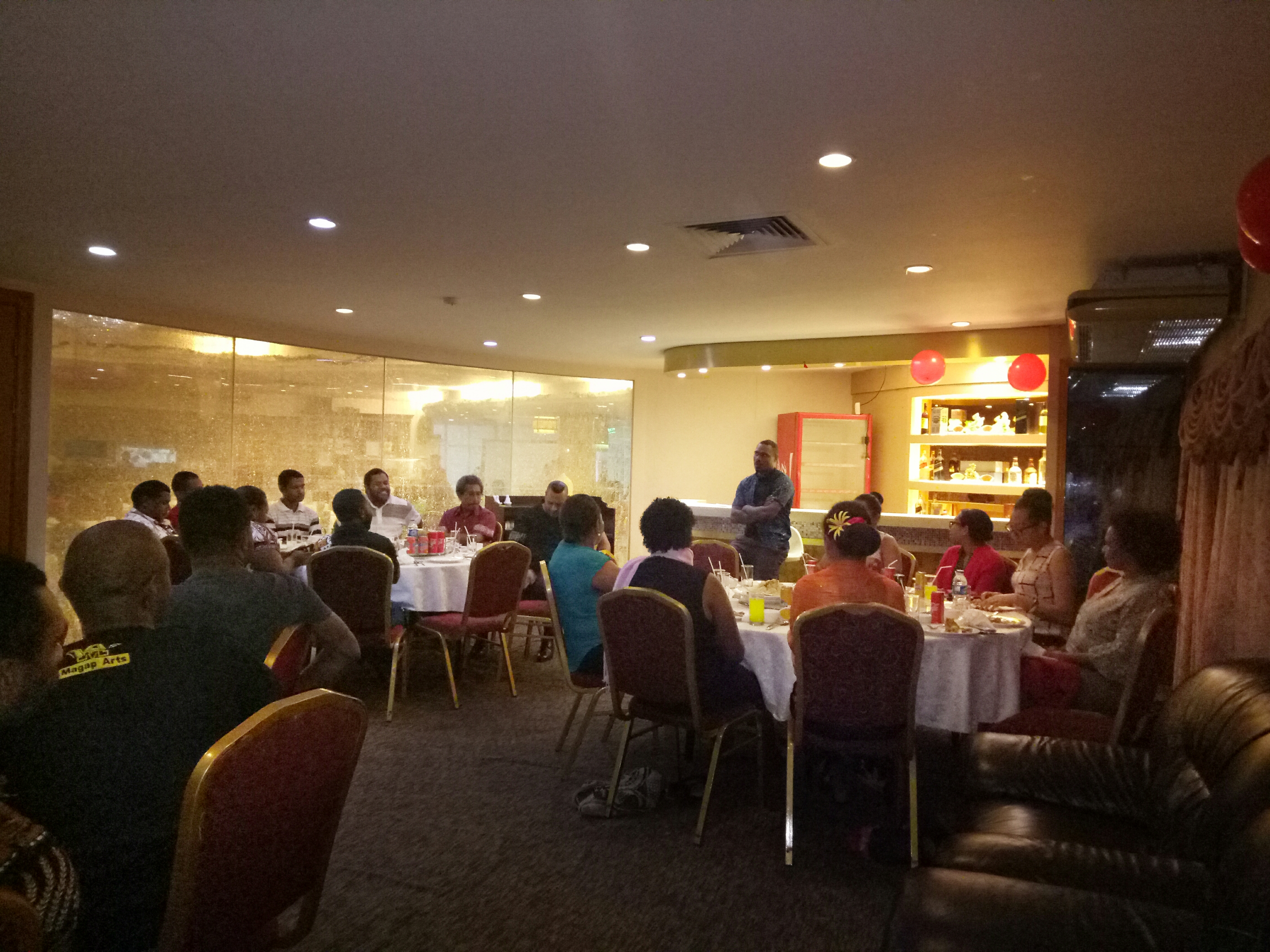
At the recent Cuppa with A+, which had a slight twist to being a dinner held at the Grand Palace Restaurant at RH Gordons, Allen Bird, East Sepik Provincial Governor, spoke to a lucky few who gathered at the event; and as most intended motivational coaching would go, the event was “lit” as what trending onliners would say to express great satisfaction.
The theme of the event was ‘Leading Change in a Tough World.’
Though making a first appearance into the political scene in the 10th National Parliament as the Governor of East Sepik Province, the name Allen Bird is an all too familiar name in East Sepik, with a well-established and successful reputation in the community and the business sector.
The event being motivational was also not limited; it provided a platform for the flow of information, knowledge and discussions from the country’s brief history of the Parliament House to the current economic state and promises of a desirable future all while taking a stand against corruption.
The Misguided/interpreted Term of ‘Haus Tambaran’: PNG’s National Parliament House
Papua New Guinea’s National Parliament House, commonly termed by many as the ‘Haus Tambaran’ is one of the most iconic buildings in PNG.
The building was constructed in 1980 and was completed and officially opened in 1984 by His Royal Highness, Prince Charles.
“The design of the house of Parliament that you see is not a ‘haus tambaran.’” Dropping a big shocker for those who have so commonly thought it was, Honorable Allen Bird clarifies the misconception of the correct name to identify the design:
“that’s an Abalam design – I’m an Abalam, and in the Abalam society you’ll always find it in the middle of the village; it’s a place where people meet to make important decisions.”
If you see the Sepik Haus Tambaran, it actually goes up on both sides. The ‘Parambu’ (the (Abalam design) goes up on one side. So the Paramu belongs to the Abalam people and Haus Tambaran belongs mostly to the River people (Referring to the tribes along the Sepik River).
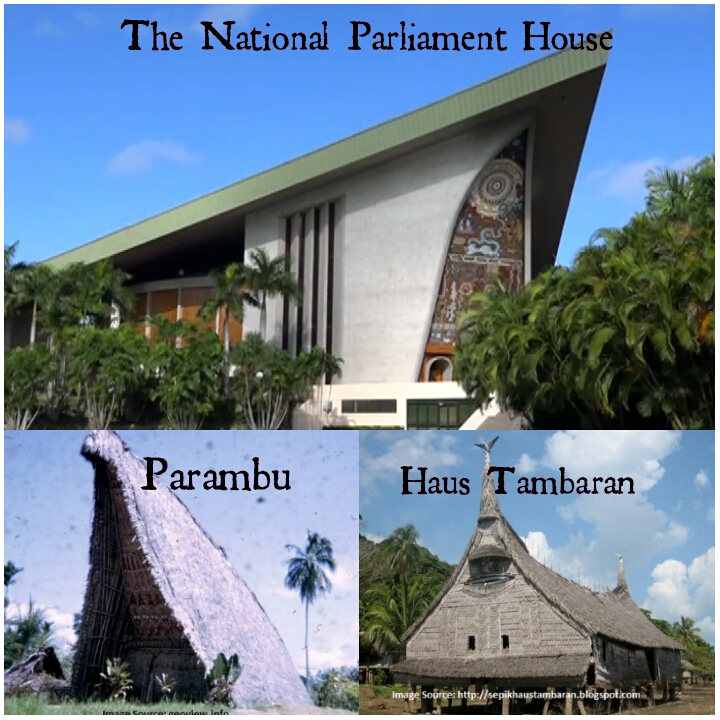
Who are the Abalams? You may ask; The Abalam society is made up of tribes who occupy the Sepik Plains and the foothills of East Sepik province; consisting of a majority of districts from the provinces’ following districts:
- Wosera-Gawi
- Ambunti-Drekikir
- Maprik
- Yangoru-Sausia and
- Angoram
Facing Challenges and Ethnical Barriers
Papua New Guinea is known for having more than 800 languages, a mysterious land with thousands of tribes and varying cultures.
“We have about 270 ethnic groups, so more than a quarter of the languages in Papua New Guinea exist in East Sepik.” Stated the East Sepik Governor.
With this peek into the diversity and distribution of languages and traditions, one can get a sense of the challenges faced dealing with all forms of development – with their own languages, ethnicity and traditions, all combined, giving just a glimpse of a diverse Papua New Guinean society, but that is only of one province; now with the same understanding, picture 21 other provinces with their own languages, thousands of tribes and cultural/traditional barriers – and you understand why PNG is one of a unique country in the world!
Taking a step forward, Papua New Guinea is also facing other challenges such as corruption in a harsh economic time (to name a few).
“When you come into leadership positions in Papua New Guinea what you find is that there’s already an existing behaviour and practice within the leadership circles. It’s the people who do the unusual things that are going to change what happens in the future,” Allan Bird said.
According to the Asian Development Bank (ADB) – Papua New Guinea’s largest multilateral development partner since 1971, the country’s GDP is growing at a projected rate of 1.8% in 2018 in a report released earlier in the year. The report also indicated that from an inflation rate of 5% in 2018, it is projected to fall to 4.5%; although an improvement, it still leaves PNG heading second on the table among the other Pacific nations.
Coming into a Common Ground: Keeping Traditions Alive as a way of Governance
For centuries, Papua New Guinean cultures have kept its people in line with its own system of governance with tabus, rituals and laws.
“Some of the values our ancestors had are actually amazing and we need that these days.”
“yu mas katim pig long ai bilong olgeta mahn” The Governor gave a local proverb to point out transparency in his society, learning from his grandfather who was a tribal war chief.
“I am fully initiated so I understand all of the village leadership values that we have and cherish as a society. A lot of what I do…is really looking back to what my ancestors had.”
The governor went on to point out the need to serve others before ourselves, quoting Grand Chief Sir Michael Somare: “mit mi givim long narapela mahn, yupela kaikai bun pastem – we look after others first, we look after ourselves last,” Mr Bird explained, pointing out service for others with a good heart and to be considerate of others.
People are the Change
“My firm belief is this: the most important energy for growing this country is not us members of Parliament and our expensive contract agreements, it’s the people. It’s all of you. If all of you can do one or two things positive every day and if the entire community is doing it every day, we will see changes – You can do a lot of good while you’re here.”
He explained that “…the problem is not you competing against other Papua New Guineans the problem is how do you survive against the rest of the world.”
Expanding on the scope of challenges faced, Mr Bird stated that though people may not be able to change the whole country, every individual has a chance in influencing their own little spheres with what they can and with what they know or have.
Doing What You can with What You Have
Giving examples, the Governor stated that under his leadership, yeast has been banned from entering East Sepik Province as it is used to brew illegal alcohol.
Beer bottles were also banned in the Province following high statistics from hospitals of beer bottle related injuries and emergencies after being used as weapons. And according to the Governor, while there were complaints regarding the changes, positive results were seen with a drop in beer bottle related emergencies, while some changes had a twist:
A story of 2 mothers who baked scones to sell for a living although had to sacrifice their business after the yeast ban, were rather grateful that no yeast meant their teenage sons now go home early and are safe instead of being on the streets making illegal alcohol and drinking until 4 in the morning. It meant a restful night for the mothers who once stayed up the whole night worried about when and if their sons would come home.
And like the 35th President of the United States, John F Kennedy said: ‘…ask not what your country can do for you but ask what you can do for your country,’ the East Sepik Governor gave words of encouragement for those venturing into entrepreneurship and other ways to contribute to positive changes in the country’s development, that it is the little changes that contribute to a big impact.
“If you’re just happy doing the normal things like everyone else – it’s nice because it’s safe, it’s comfortable, but the thing is: nothing will change.”


